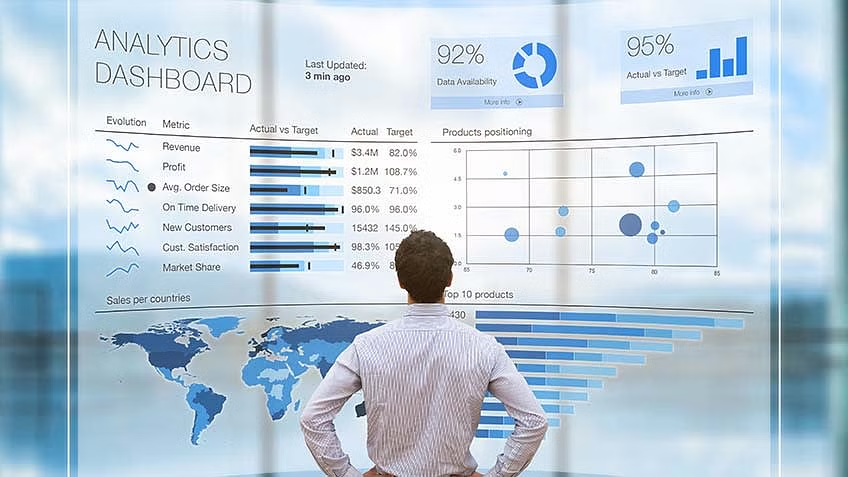Mumbai, India’s financial capital, has seen tremendous growth in data-driven businesses and a corresponding surge in demand for skilled data analysts. As companies increasingly rely on analyzing data to gain insights and drive decision-making, the role of data analysts has become pivotal. If you’re looking to enhance your career prospects, enrolling in a data analyst course or Data Analytics Course can give you a competitive edge.
However, succeeding in Mumbai’s competitive job market for data analysts requires more than just technical skills. Analysts need a robust foundation across both technical and soft skills to deliver business value. A data analyst course can help bridge the gap by equipping you with the essential skills needed for success.
This guide covers the essential skillsets recruiters look for in data analysts based in Mumbai. Whether you’re beginning your career or seeking to advance your skills, this information will help you understand what it takes to thrive as a data professional in this dynamic city. Opting for a Data Analytics Course can be a game-changer in preparing you for these challenges.
Technical Skills
Technical skills form the core of a data analyst’s responsibilities. Here are some of the most important ones to focus on:
Statistical Analysis
A firm grounding in statistics is essential for making sense of data. Core statistical concepts like descriptive statistics, probability, statistical inference, hypothesis testing, and regression analysis allow analysts to interpret patterns in data accurately. Proficiency in R, Python, or SAS is valuable for applying statistical methods programmatically. Many data analyst courses cover these topics comprehensively.
Data Cleaning and Preparation
Raw datasets often require extensive cleaning and normalization before analysis can begin. Skills like handling missing values, identifying outliers, merging datasets, and ensuring consistent formatting are crucial. Tools like Pandas, SQL, and Spark enable efficient data prep at scale.
Data Visualization
It is key to effectively communicate insights through interactive visuals. Core skills include understanding visual best practices, using visualization libraries like Matplotlib, Seaborn, or Tableau, and choosing the right chart type for the audience and messages.
Programming
While some roles may not require extensive coding, proficiency in Python or R greatly enhances a data analyst’s manipulation, analysis, and automation toolset. SQL is also critical for querying relational databases. Familiarity with diverse data types, algorithms, and best programming and software development practices boosts an analyst’s capabilities.
Machine Learning
An increasing number of roles involve tasks like model development, evaluation, and deployment. Skills like linear regression, decision trees, neural networks, and model interpretation using Scikit-learn and TensorFlow add value. Understanding ML concepts helps analysts incorporate these techniques appropriately.
Database Management
Proficiency in SQL, database modelling, and tools like MySQL, MongoDB, Azure SQL, or PostgreSQL is critical for working with large datasets. Concepts like schemas, normalization, indexing, and query optimization optimize analysis workflows.
Business Intelligence
Business intelligence (BI) tools like Power BI, Tableau, and Microstrategy enable seamless analysis and reporting. Skills in connecting diverse data sources, building effective visual reports and dashboards, and configuring alerts and subscriptions to maximize insights delivery.
Soft Skills
Equally important as technical abilities are the soft skills that allow data analysts to deliver actual business value:
- Communication: Presenting insights clearly to technical and non-technical audiences requires strong written and verbal communication skills. The ability to explain technical concepts convincingly is paramount.
- Problem-Solving: Data analysis often involves tackling unstructured, open-ended problems without a single correct answer. Key traits include analytical thinking, creative solutions, and perseverance through roadblocks.
- Attention to Detail: Working with data requires meticulous care to avoid errors. Skills like double-checking work, tracking assumptions, and maintaining documentation standards ensure accuracy.
- Business Acumen: Understanding business domains, metrics, goals, and stakeholder needs provides vital context for prioritizing the proper analysis. The ability to translate insights into actionable recommendations is valued.
- Adaptability: The data industry evolves constantly. An eagerness to learn new techniques, explore emerging tools independently, and adapt to changing requirements demonstrates versatility crucial for long-term career growth.
- Collaboration: Sharing knowledge, receiving feedback, and working effectively in teams leverage collective intelligence for more robust outcomes. Open communication, respect, and organization foster cooperation.
Building Your Skills
To succeed as a data analyst in Mumbai, focus on:
- Formal Education: Choose degree/certificate programs wisely based on your goals. Statistics, computer science, or specialized data analytics courses provide strong foundations.
- Hands-on Experience: Pursue internships, freelance projects, or take on pro-bono work using real public datasets. Participate in hackathons and Kaggle competitions. Build your portfolio.
- Continuous Learning: Subscribe to blogs, newsletters, and podcasts, and take MOOCs to stay updated. Certifications, such as those from a data analyst course, demonstrate mastery over tools and techniques.
- Networking: Engage with local meetups, conferences, and mentors to build your professional community and learn from others. Online forums also foster idea-sharing.
- Personal Projects: Take on self-directed, open-ended analysis problems to autonomously hone your skillset from data collection to presentation.
By developing mastery across these essential skills through experiential learning avenues, data analysts can position themselves competitively for roles at top companies based in Mumbai and beyond. Constantly challenging yourself keeps your skills sharp to deliver tangible business value.
Certifications
Certifications validate expertise and competence to employers by demonstrating mastery over standardized curricula. Popular options for data analysts include:
- Certified Data Analyst (CDA)– Helps entry-level analysts showcase fundamentals of SQL, statistics, data visualization and communication skills.
- Certified Analytics Professional (CAP)– Comprehensive certification assessing expertise in business analytics methods, tools, and strategies for driving business value.
- Certified Business Intelligence Professional (CBIP)- Assesses knowledge of BI infrastructure, data management, analysis techniques, visualization best practices, and governance processes
- Google Analytics Individual Qualification(GAIQ)– Recognizes proficiency with Google Analytics for tracking website usage, campaigns, and conversions.
While not mandatory, certifications signal self-driven learning behaviors beneficial during hiring. Popular options aligning to specific technologies, domains or stages of experience are most career-relevant.
Conclusion
In conclusion, the data analysis field in Mumbai offers exciting career opportunities for skilled professionals. However, succeeding in this competitive job market requires more than technical skills – analysts must cultivate well-rounded expertise across technical areas, soft skills, and industry knowledge. Staying up to date with new tools, techniques, and best practices is also essential to provide sustained value.
While formal qualifications lay the groundwork, hands-on learning through projects, hackathons, and internships sharpens one’s abilities. Above all, effective communication, problem-solving, and an ability to simplify complex topics are highly valued traits. By pursuing mastery through experience and continuous learning, data analysts can look forward to impactful roles at the cutting edge of Mumbai’s thriving data-driven businesses.
Name: ExcelR- Data Science, Data Analytics, Business Analytics Course Training Mumbai
Address: 304, 3rd Floor, Pratibha Building. Three Petrol pump, Lal Bahadur Shastri Rd, opposite Manas Tower, Pakhdi, Thane West, Thane, Maharashtra 400602
Phone Number: 09108238354




